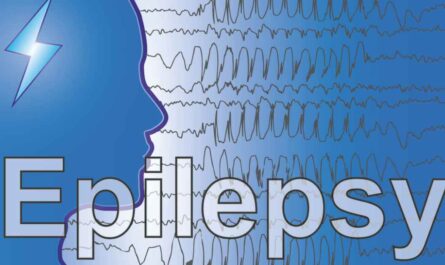Introduction
Epilepsy, a neurological disorder characterized by recurrent seizures, impacts millions worldwide. While individuals with epilepsy can lead active lives, certain activities may pose risks and should be approached with caution. In this guide, we’ll explore activities to avoid with epilepsy and provide insights on how to navigate lifestyle choices for optimal safety and well-being.
Understanding Epilepsy and Seizures
Before delving into specific activities, it’s essential to understand the nature of epilepsy and its associated seizures. Epileptic seizures vary widely in type, duration, and intensity, ranging from brief episodes of staring to convulsive movements affecting the entire body. These seizures can occur spontaneously or be triggered by various factors, including stress, sleep deprivation, flashing lights, or specific medications.
Evaluating Risk Factors and Individual Considerations
When considering activities, it’s crucial to assess individual risk factors and seizure triggers. Factors such as seizure frequency, medication adherence, and overall health play a significant role in determining suitability for certain activities.

Consulting with healthcare professionals, including neurologists and epilepsy specialists, can provide personalized guidance based on individual circumstances.
Identifying High-Risk Activities
While many activities are generally safe for individuals with epilepsy, some carry higher risks of injury or seizure exacerbation. Understanding these risks can help individuals make informed decisions about their participation. Here are some activities to avoid with epilepsy:
Swimming Alone
Water-related activities, particularly swimming, can pose significant risks for individuals with epilepsy. Seizures occurring in water can lead to drowning or near-drowning incidents, making swimming alone particularly dangerous. Always swim with a lifeguard or buddy who is aware of your condition and knows how to respond in case of a seizure.
Rock Climbing and Extreme Sports
Activities that involve heights or extreme physical exertion, such as rock climbing, skydiving, or bungee jumping, should be approached with caution. Seizures occurring during these activities can result in falls or other serious injuries. Consider alternative, lower-risk recreational pursuits that offer similar thrills without the inherent dangers.
Contact Sports and Martial Arts
Participation in contact sports and martial arts carries an increased risk of head injuries, which can trigger seizures or exacerbate existing epilepsy. Sports such as football, boxing, and mixed martial arts involve frequent physical contact and impact, heightening the risk of injury. Opt for non-contact sports or activities that prioritize safety and minimize the likelihood of head trauma.
Implementing Safety Measures and Precautions
While certain activities may be off-limits, there are steps individuals with epilepsy can take to enhance safety and minimize risks in their chosen pursuits. Here are some tips for safely engaging in recreational activities:
Wear Protective Gear
When participating in sports or physical activities, wearing appropriate protective gear can help mitigate the risk of injury. Helmets, knee pads, and other protective equipment can provide an added layer of protection against falls or collisions, reducing the likelihood of head injuries during seizures.
Inform Others About Your Condition
Ensure that family members, friends, coaches, and activity partners are aware of your epilepsy and how to respond in case of a seizure. Provide them with essential information, such as seizure first aid protocols and emergency contact details. Open communication fosters understanding and ensures prompt assistance when needed.
Maintain Medication Adherence
Consistently taking prescribed antiepileptic medications as directed by healthcare providers is critical for seizure control and overall well-being. Skipping doses or altering medication regimens without medical supervision can increase the risk of breakthrough seizures, particularly during strenuous activities or periods of heightened stress.
Listen to Your Body
Pay attention to your body’s signals and know your limits. If you experience warning signs or prodromal symptoms indicating an impending seizure, take appropriate precautions and pause your activity until you feel safe to continue. Pushing through fatigue or discomfort can increase the likelihood of seizure occurrence.
Conclusion: Prioritizing Safety and Well-Being
While epilepsy may present certain limitations, individuals with the condition can still lead fulfilling lives by making informed choices and prioritizing safety in their activities. By understanding potential risks, implementing safety measures, and seeking guidance from healthcare professionals, individuals with epilepsy can confidently navigate recreational pursuits while minimizing the impact of their condition. Remember, safety always comes first, and with proper precautions, individuals with epilepsy can continue to engage in activities that bring joy, fulfillment, and a sense of accomplishment.
FAQs: Addressing Common Concerns
Q: Can individuals with epilepsy participate in sports or physical activities?
A: Yes, but certain activities may carry higher risks and should be approached with caution. Consult with healthcare professionals for personalized guidance.
Q: Are there specific sports or activities that individuals with epilepsy should avoid?
A: While the level of risk varies, activities involving water, extreme physical exertion, or contact sports may pose higher risks and should be avoided or modified accordingly.
Q: How can individuals with epilepsy enhance safety during recreational activities?
A: Wearing protective gear, informing others about their condition, maintaining medication adherence, and listening to their bodies are essential steps in minimizing risks and ensuring safety.
Disclaimer
This article provides general information and should not replace personalized medical advice from healthcare professionals. Individuals with epilepsy should consult with their healthcare providers before engaging in any physical activities to assess individual risks and determine appropriate safety measures. Always prioritize safety and well-being when participating in recreational pursuits.



